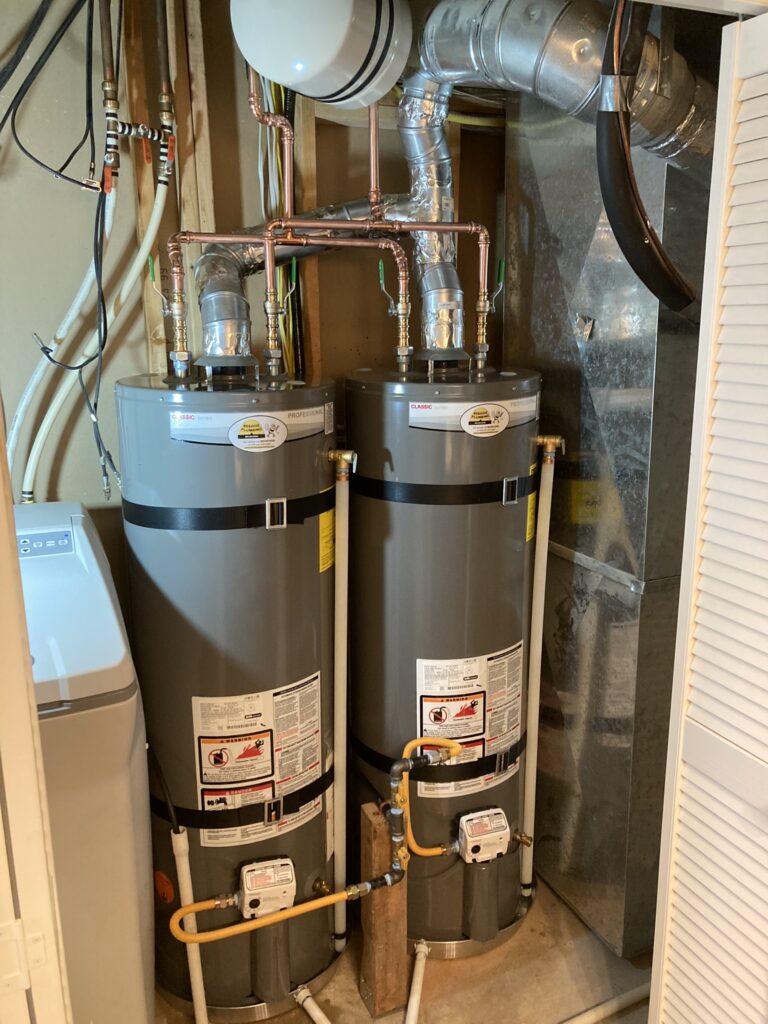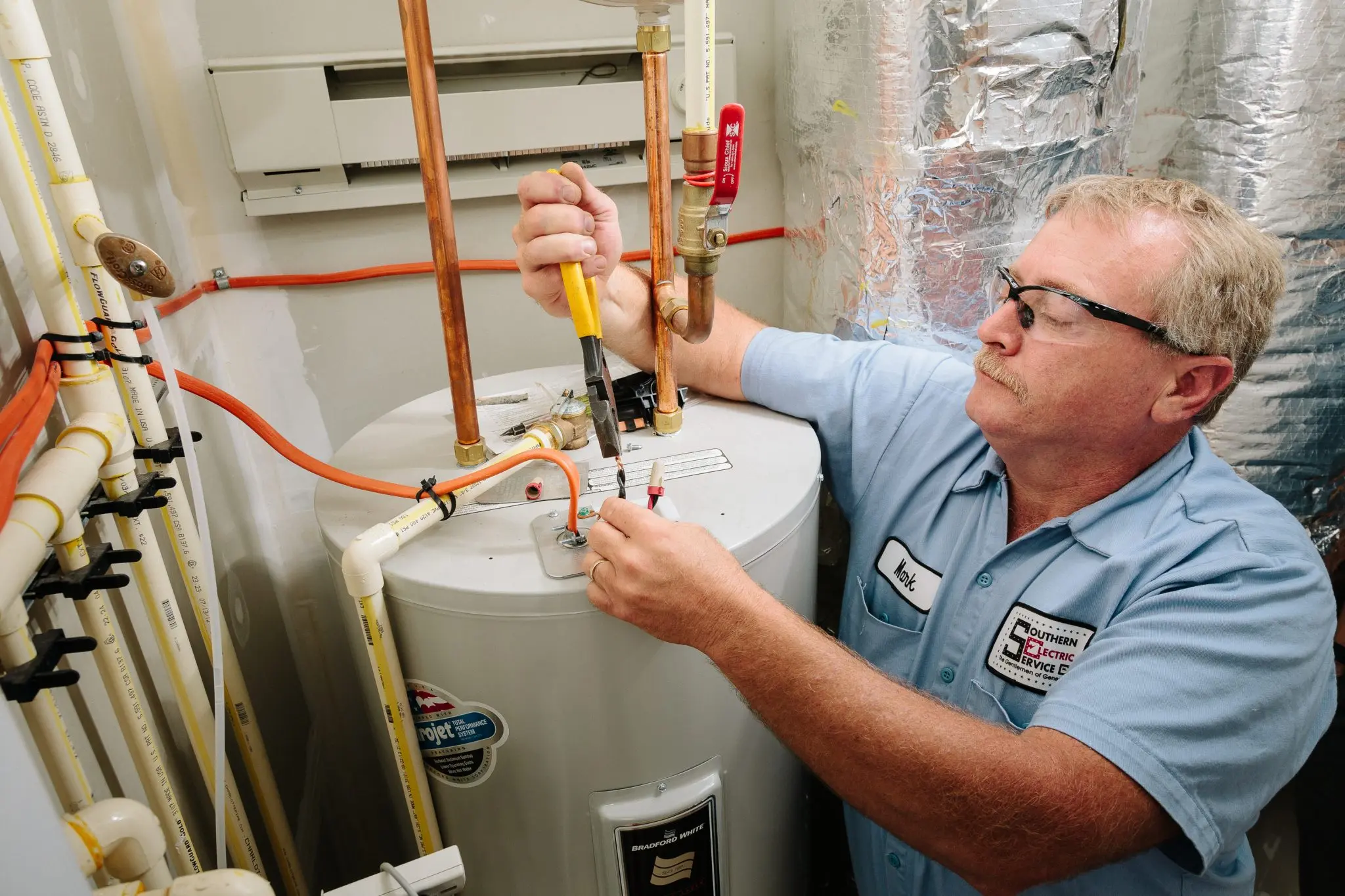Comprehensive Drain Cleaning Services to Ensure Healthy Plumbing
Comprehensive Drain Cleaning Services to Ensure Healthy Plumbing
Blog Article
Complete Overview to Water HeaterInstallation and Substitute
Comprehending the details of hot water heater installment and substitute is critical for homeowners seeking to make sure efficiency and dependability in their warm water supply. From selecting the ideal type and size to carrying out a seamless setup process, numerous elements should be taken into consideration to prevent typical challenges. This overview will provide you with the needed steps and insights to navigate the complexities of this home improvement job, while also emphasizing important upkeep practices that can extend the life of your system. As you discover these elements, you might discover on your own reassessing your current arrangement and recognizing areas for enhancement.
Types of Water Heating Systems
When taking into consideration water heating system installation and substitute, it is vital to recognize the different types of hot water heater readily available in the market. One of the most usual types consist of storage tank hot water heater, tankless hot water heater, heat pump hot water heater, and solar water heating systems.
Container water heating systems are conventional systems that keep a particular quantity of warm water, making them conveniently offered when required. In contrast, tankless water heaters give warm water on demand, removing the need for storage.
Heatpump water heating systems use electrical power to move warm from the air or ground to warmth water, offering substantial energy cost savings but calling for more room and particular installation problems. Finally, solar hot water heater harness solar power to warm water, offering a green option with prospective lasting price savings, although they usually need a backup system for over cast days.
Recognizing these alternatives makes sure informed choices pertaining to installation and substitute, accommodating certain requirements and choices.
Choosing the Right Size
Picking the suitable size for a water heating system is critical to guarantee optimal performance and efficiency. An unit that is as well little will battle to satisfy family needs, bring about irregular warm water accessibility and increased energy intake. Conversely, a large hot water heater can cause unnecessary power waste and greater utility costs.
To identify the right dimension, take into consideration the home's height warm water use. This can be computed based upon the number of passengers and their typical hot water needs. A family of 4 might need a water heating unit with a capability of 50 to 80 gallons, depending on the use patterns, such as simultaneous showers and washing.
In addition, evaluate the recovery rate, which measures how promptly a heating unit can renew warm water after it has been utilized. For tankless models, concentrate on the flow rate, gauged in gallons per min (GPM), to ensure it satisfies the home's simultaneous need.

Installation Refine Overview

Following, the old device needs to be disconnected and eliminated, making sure to adhere to local codes and guidelines regarding disposal. When the old unit is out, the brand-new water heating system can be positioned in area. This step entails attaching the water system lines, ensuring that all fittings are safe and secure and leak-free.
After developing water connections, it's vital to link the power supply, whether electric or gas, following the producer's guidelines carefully. Once all links are made, the system needs to be loaded with water, and the power can be turned back on. Ultimately, it is necessary to inspect for leaks and make certain the water heater is working appropriately prior to finishing the setup procedure.
Typical Setup Errors
:max_bytes(150000):strip_icc()/installing-an-expansion-tank-2719066-hero-375405ad9eaa426a880e3ed978ba00f5.jpg)
An additional regular mistake is ignoring to adhere to neighborhood codes and laws. Failing to stick to these standards can not only result in safety dangers but may additionally lead to pricey penalties or the need for pricey reinstallation. Additionally, improper venting is an essential concern. Inadequate ventilation can create dangerous gas accumulation, positioning major wellness risks.
Inaccurate plumbing links are also a widespread error. Failing to secure links or utilizing the wrong type of fittings can lead to leakages and water damages. Forgeting the value of a proper drain frying pan can result in substantial water damage if leakages do occur. Lastly, poor insulation of pipes can have a peek here result in warmth loss, decreasing effectiveness. By avoiding these common setup blunders, homeowners can ensure their hot water heater operates securely and effectively, taking full advantage of performance and longevity.
Upkeep Tips for Durability
Proper maintenance of a hot water heater is necessary for its long life and optimal efficiency. Normal evaluations and servicing can avoid pricey repairs and extend the appliance's lifespan. Begin by examining the temperature level setting; it ought to generally be set between 120 ° F and 140 ° F for optimal power effectiveness and safety and security.
Every six months, flush the container to eliminate debris build-up, which can harm heating effectiveness and cause corrosion. To do this, switch off the heater, attach a hose pipe to the drain shutoff, and let the water run till it is clear.
Anode rods ought to be checked every year and replaced when they are rusted. These poles help stop tank corrosion by attracting corrosive aspects in the water.
In addition, inspect the pressure relief Visit Website valve on a regular basis to ensure it is operating correctly. This shutoff is essential for preventing excessive pressure buildup within the container.
Last but not least, think great post to read about arranging a specialist upkeep check every few years for detailed evaluations and maintenance. By sticking to these upkeep ideas, house owners can dramatically improve the effectiveness, safety and security, and life expectancy of their water heating units, guaranteeing trusted warm water for years to come.
Final Thought
In conclusion, proper setup and upkeep of water heating units are important for guaranteeing performance and longevity (pipe repair). Selecting the ideal type and dimension, adhering to installment standards, and avoiding usual mistakes dramatically add to optimum efficiency. Routine maintenance checks and expert maintenance aid receive functionality and prevent costly repairs. By comprehending these important aspects, property owners can achieve a trustworthy warm water supply while decreasing prospective issues associated with water heating unit procedure.
Comprehending the ins and outs of water heating unit installation and replacement is essential for homeowners seeking to make certain performance and dependability in their warm water supply.Container water heating systems are conventional systems that keep a details volume of hot water, making them conveniently offered when required. In contrast, tankless water heaters offer hot water on demand, getting rid of the need for storage space. Picking a water heating unit that is either as well tiny or as well big can lead to inadequacies, resulting in insufficient hot water supply or excessive energy intake.
By recognizing these crucial aspects, homeowners can accomplish a reliable hot water supply while lessening possible problems connected to water heating system operation. water heater installation.
Report this page